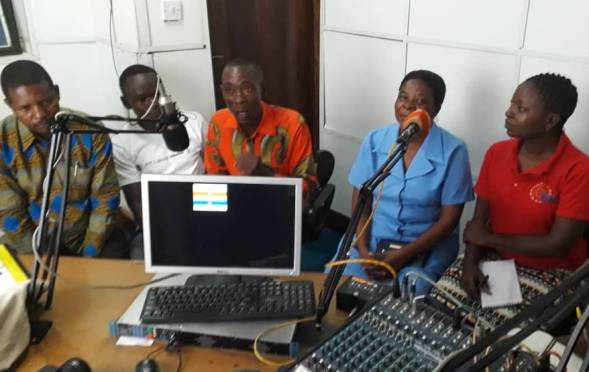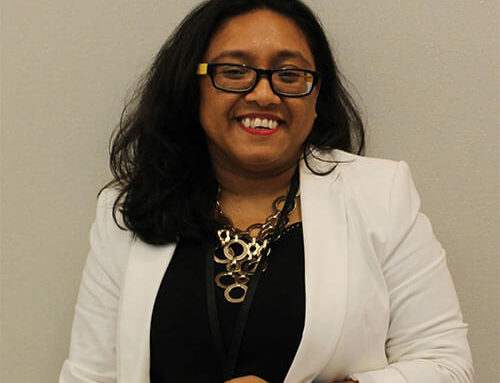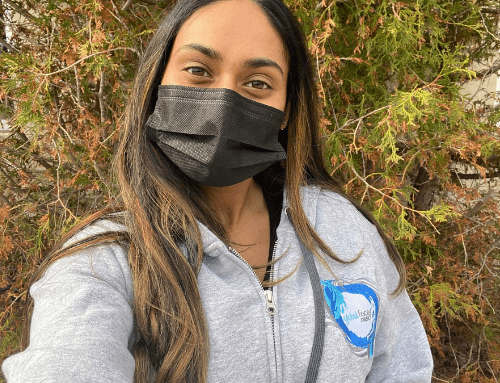
Nuru Ngailo, Amref Health Africa in Tanzania
From their parents and ancestors, communities in Simiyu Region in Tanzania have adopted certain beliefs and practices that affect the decisions they make in their day-to-day lives. Some of these practices are constructive, such as respect for elders, loving and caring for others and so much more. Other traditional practices are harmful and based on myths and taboos that negatively affect reproductive, maternal and child health in the region. It especially affects women and girls.
During an interview with Redempta Kijuu, the District Reproductive Health Coordinator at Simiyu Region, she explained:
“There are still cases of home deliveries [without skilled health care] in the districts which are mostly caused by existing myths and taboos. For instance, in Maswa District in 2017 there were a total of 12 deaths in the district that occurred at the facility and at homes. In 2018, it reduced to six deaths and in the first six months of 2019 there were six deaths, out of which four occurred at home and two at the hospitals. Some of the traditional cultural practices that are negatively affecting the health of women and children include: marrying of girls under the age of 18 so as to get bride price (dowry) and mothers not attending clinic sessions because of the myth that they will get infections.”
There are other types of myths and taboos that harm mothers and children, such as women not being empowered to make decisions about their reproductive health or the practice of applying cow dung and herbs to the umbilical cord of a newborn after birth which leads to infection of the umbilical cord.
Patrick John (pictured above), 36, a resident of Masela in Maswa District Council, is a Community Health Worker working closely with the Uzazi Uzima project. In his daily work, he has been challenged by the beliefs and practices with communities.
“During one of my routine household visits, I came across a pregnant mother who was sick and was living with her parents; they lived near a river. When I asked to take her to the hospital the parents refused (with so much anger) and said their culture does not allow a pregnant mother to cross a river. They said that if their daughter crossed the river she would die. I used a lot of effort to explain to them that this notion was not true and after hours of explaining the importance of her receiving medical treatment, they allowed me to take her to Masela Dispensary [across the river]. While we were on the way, the pregnant woman’s condition became worse and she asked that I stop the bike so that she could sit in the shade. I then called an ambulance and I asked people nearby to assist the woman. The woman was carried to Masela and when we reached the dispensary she was referred to the district hospital because of her condition. The ambulance that I had called took her to the district hospital where she was operated on and safely delivered the baby.”
Apart from using Community Health Workers to address myths and taboos, the project is also using a community radio station called Sibuka FM in Simiyu. Based on the current audience survey done by the radio station, it reaches a total of two million people in all the districts of Simiyu (the target community of the project), Mwanza, Shinyanga, Musoma and other neighbouring lake zone regions. The community radio is reaching out to a large number of people in Simiyu alone, with estimates of about 1.5 million. The project has used the opportunity of free call-in radio programs to address some of the myths and taboos around the health of women, babies, children and adolescents, including sexual and reproductive health and rights. Community members text and call the radio programs to ask questions on the various topics being discussed with health experts. The radio station has also broadcast several ads addressing myths and taboos. It has been a resounding success.
In order to reach the goal of reducing maternal, newborn and child mortality, the Uzazi Uzima project is breaking some of these myths and taboos and is using various other avenues, such as its community mobilization and sensitization events, to address them. The project has realized that more efforts should be channeled towards addressing myths and taboos so that health improvements for women and children can be sustained over the long-term.
About the Uzazi Uzima Project
The Uzazi Uzima project in Simiyu Region, Tanzania is a partnership among Amref Health Africa, Marie Stopes and the Government of the United Republic of Tanzania, with Deloitte as a service partner. Uzazi Uzima (Kiswahili for “Safe Deliveries”) is focused on reducing maternal mortality and morbidity rates in six district councils in the region. With support from the Government of Canada through Global Affairs Canada and from James Percy Foundation, this four-year project aims to reach about 345,000 women and adolescent girls and 330,000 men and adolescent boys directly.





